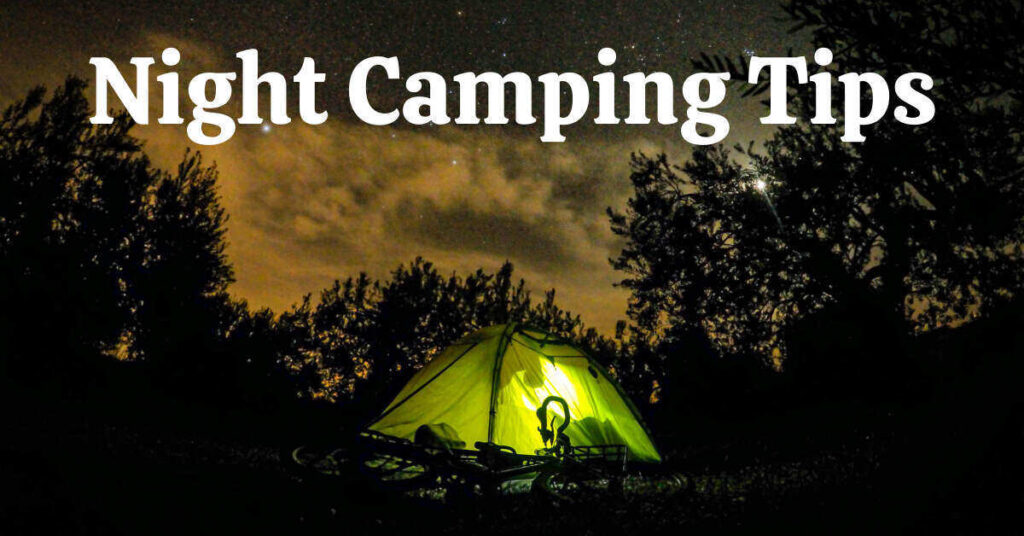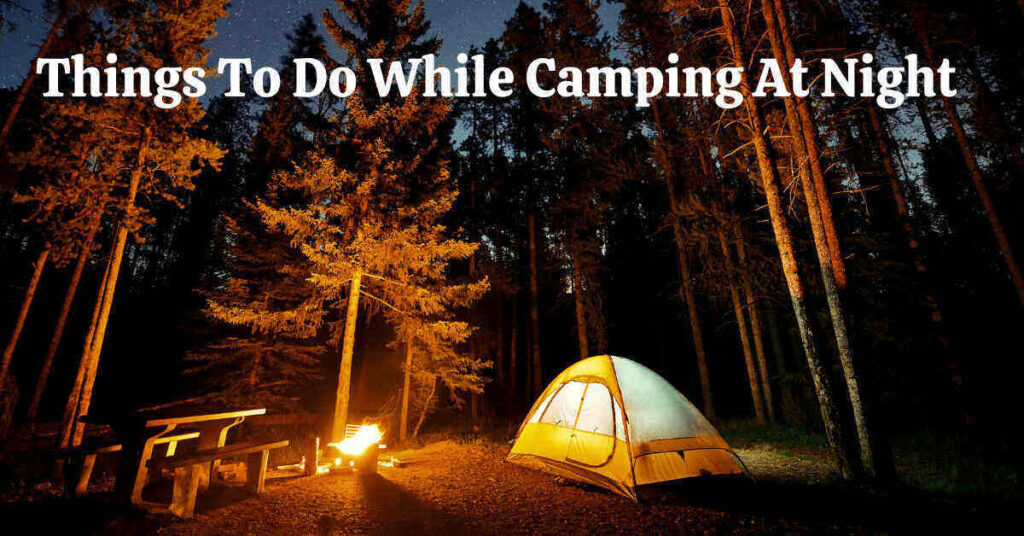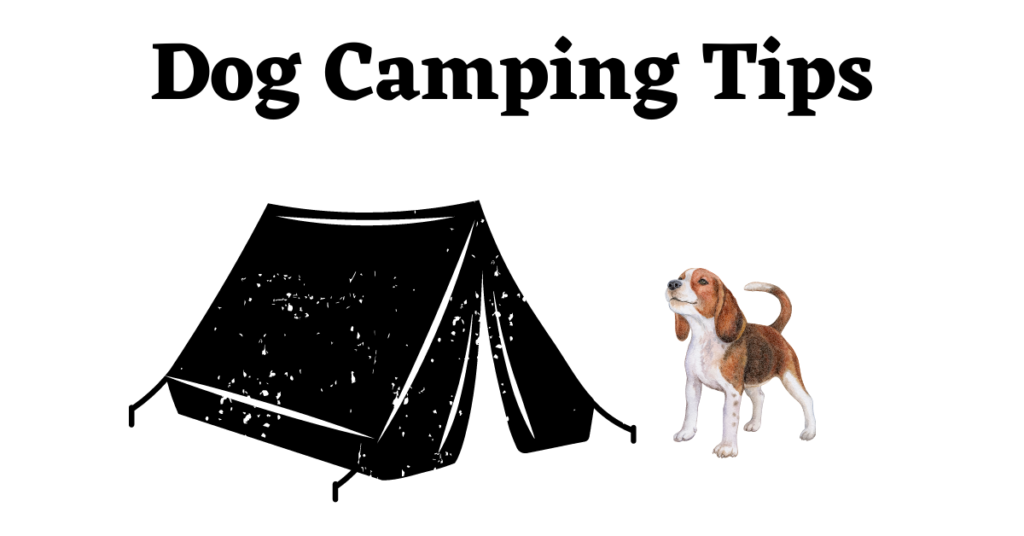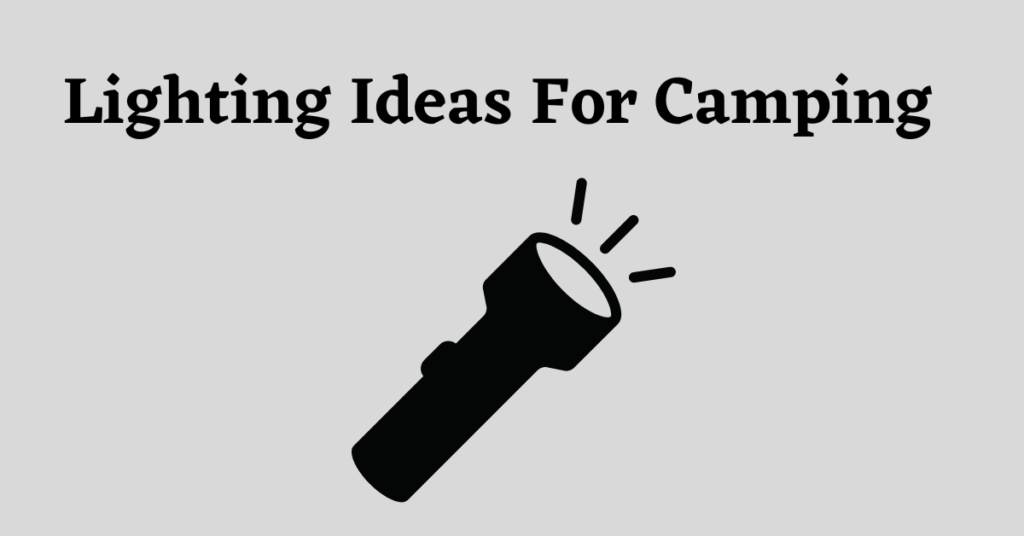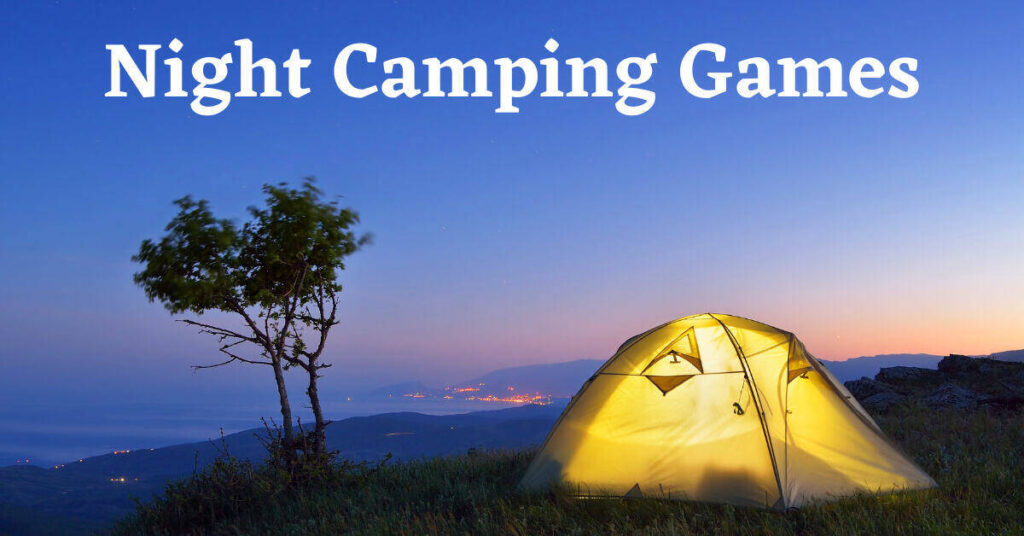As the sun sets and the temperature starts to drop, many campers begin to feel a sense of dread. They know the fun is about to end, and they must face the cold night ahead. But it doesn’t have to be that way! With a few tips and tricks, you can make night camping just as comfortable – and even more fun – than camping during the day. Here are some tips for making your next night camping trip a success.
1. Don’t be afraid of the dark – Embrace it!
Night camping can seem intimidating, but you don’t have to fear the darkness. Instead, embrace it and use it to your advantage. You will get a chance to see stars and constellations and experience the darkness’s peace and serenity.
2. Invest in quality camping gear
Investing in high-quality camping gear is one of the keys to night camping success. This means ensuring that your sleeping bag, tent, and other items are made from durable materials that will keep you warm and comfortable throughout the night.
3. Prepare for the weather
The other key to night camping success is being prepared for the weather. Pack warm clothes, rain gear, and other items that will help keep you comfortable and dry throughout the night.
4. Use a headlamp or flashlight
Having a good source of light is essential for night camping. Whether you use a headlamp or a flashlight, ensure you have one so you can see your surroundings if needed.
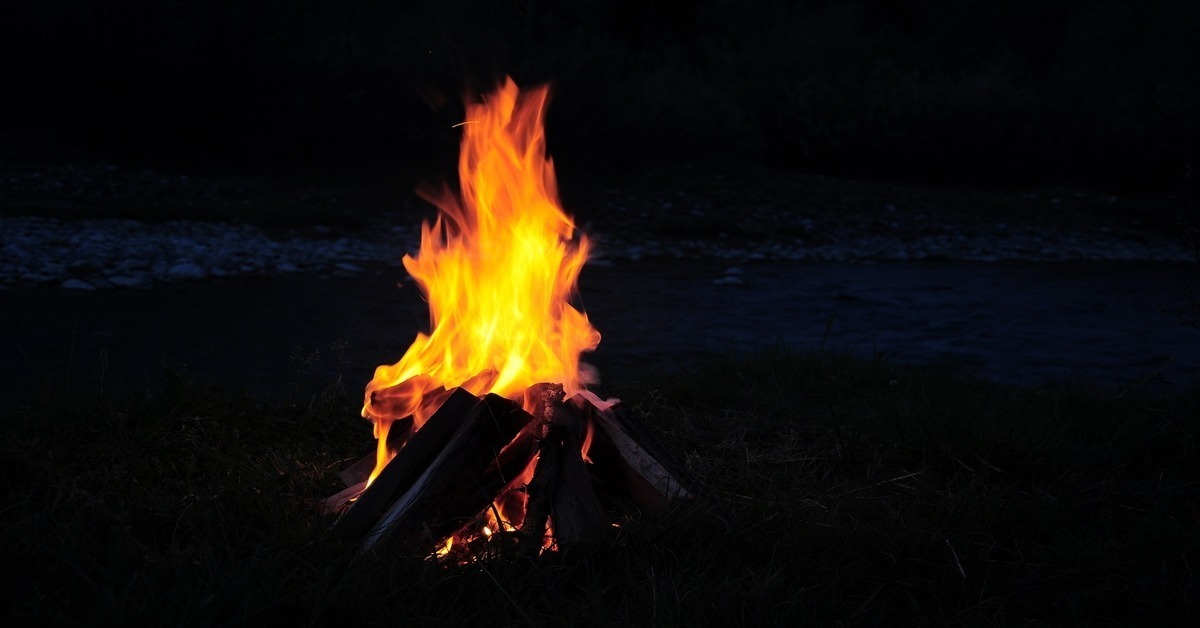
5. Know your surroundings
Imagine pitching your tent near hazards like snake nests and anthills. You can avoid unpleasant scenarios by being aware of your environment. If it is your first time at a campground, study the area to find the safest place to pitch your tent during the day. This will help you avoid any problems that may arise at night.
6. Pack a survival kit
It is always a good idea to pack a survival kit, just in case something goes wrong. The kit should have items like matches, fire starters, and first aid supplies. These essentials will help you if you find yourself in an emergency situation.
7. Stay hydrated
When you’re out in nature for an extended period, it is vital to stay hydrated. Bring plenty of water with you and take regular water breaks throughout the night. This will help keep your energy levels up.
8. Know the local wildlife
Before you head out for night camping, take some time to learn about the local wildlife. This will help you be aware of any potential dangers lurking in the darkness and how to avoid them.
Understanding the local wildlife will also help you pack the necessary gear. For instance, if you are camping in an area with bears, it is advisable to bring bear spray. Bear spray will keep bears away from your tent.
9. Plan early
Camping at night can be an enjoyable and rewarding experience, but it is important to plan early. Start planning at least a few days in advance so you have enough time to get the necessary gear.
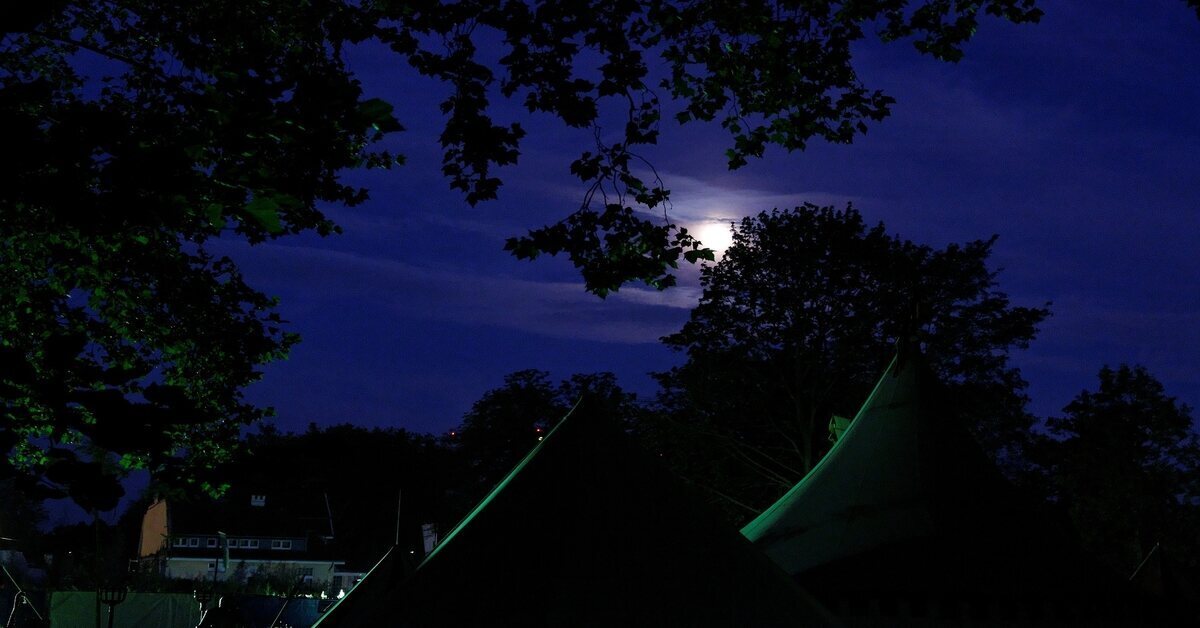
10. Stay alert
One of the most important tips for camping at night is to stay alert. Pay attention to your surroundings and don’t wander too far from camp. Stick with the group and be aware of any potential dangers that may arise.
11. Have fun!
Finally, don’t forget to have fun while camping at night! Enjoy the peaceful atmosphere and all of the nocturnal sounds you will hear. It’s an excellent opportunity to get away from the hustle and bustle of everyday life.
Night camping don’ts
While camping at night can be a fun and rewarding experience, there are some things that you should avoid to make sure your trip goes smoothly. Here are the most crucial night camping don’ts.
· Wandering off alone
When camping at night, do not wander off on your own. This will help you avoid getting lost or encountering any dangerous wildlife. Plus, staying with the group is more fun!
· Leaving food out
Leaving food out is a surefire way to attract all sorts of unwanted visitors. It’s best to store all food in an airtight container or hang it from a tree branch away from your camp. This will ensure that any wild animals don’t come sniffing around for a snack.
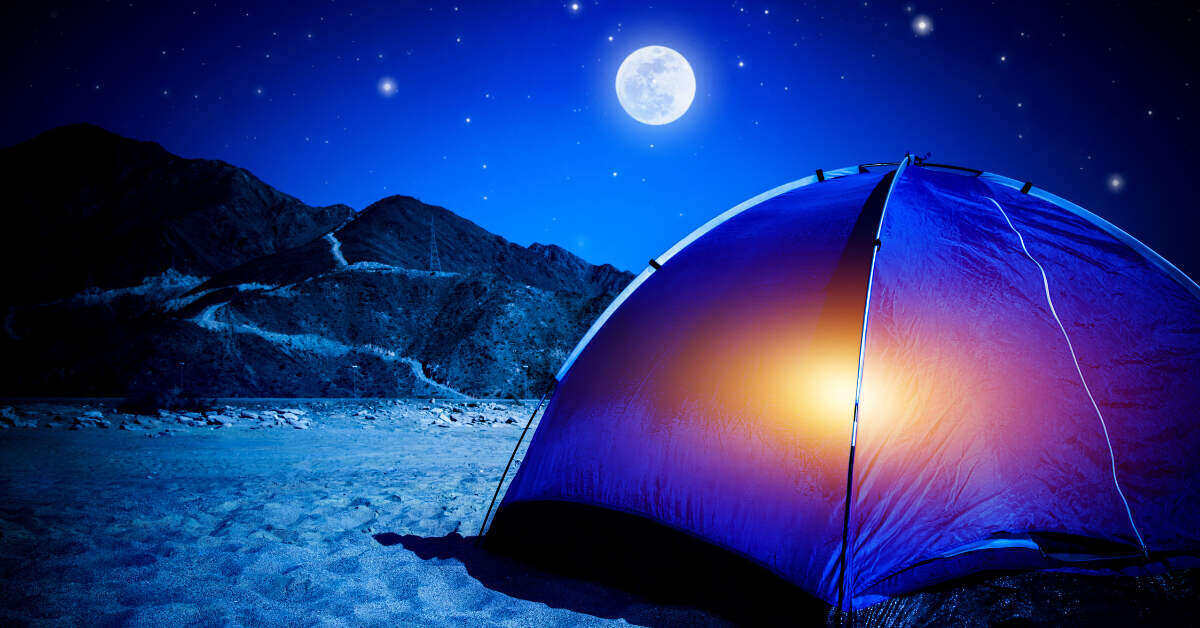
· Forgetting to bring a flashlight
You’ll need to be able to improve your visibility once the sun goes down and you don’t want to be stuck in the dark. Make sure you have a reliable flashlight or headlamp with plenty of extra batteries, just in case.
· Camping near water
One thing you shouldn’t do when camping at night is camp near water bodies like lakes and rivers. Camping next to water bodies causes the following problems:
– May prevent the local wildlife from accessing the water bodies.
– Contaminants like soap and food can get into the water, polluting it.
· Forgetting to dispose of waste properly
The last thing you want to do is leave behind a mess when you leave the campsite. Ensure you properly dispose of all waste, including food scraps and trash.
· Not checking the weather forecast
Checking the weather forecast before heading out is a crucial step in night camping safety. Know what kind of conditions you will be facing so you can plan accordingly.
· Not having an open fire
Having a campfire at night can be a great way to keep yourself warm and ward off any predators. However, it would be best if you avoided having an open fire as this can pose a serious risk of starting a wildfire. Instead, opt for using a portable camping stove.
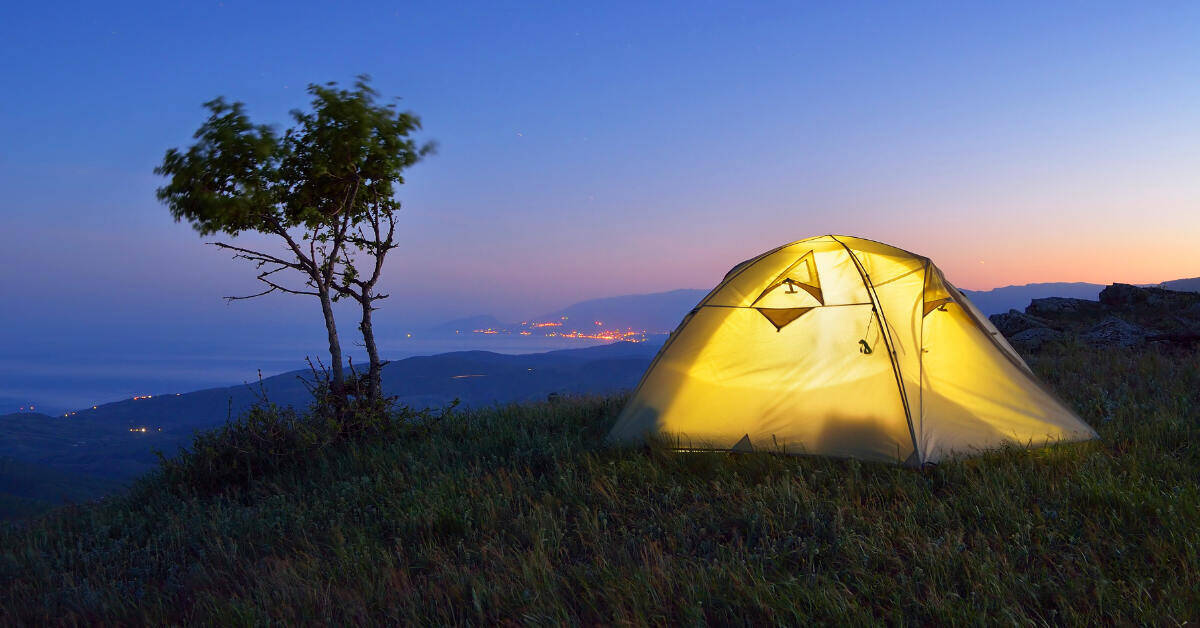
· Leaving out emergency supplies
If something goes wrong during your night camping trip, you’ll want to have the necessary supplies on hand. Bring a first aid kit and any other medical supplies that might be needed in case of an emergency.
· Not packing sun protection
Just because it’s dark doesn’t mean you won’t need sun protection. Bring a hat, sunglasses, and sunscreen to protect your skin from UV rays during the day.
· Not bringing bug spray
Bugs are common when camping, especially at night. Make sure to bring along some bug repellent to keep those pesky critters away.
Night camping can seem intimidating, but with a bit of planning and preparation, it can be a delightful experience. Just remember to stay safe and respect the environment. With these tips in mind, your next night camping trip will surely be a success. Happy night camping!

